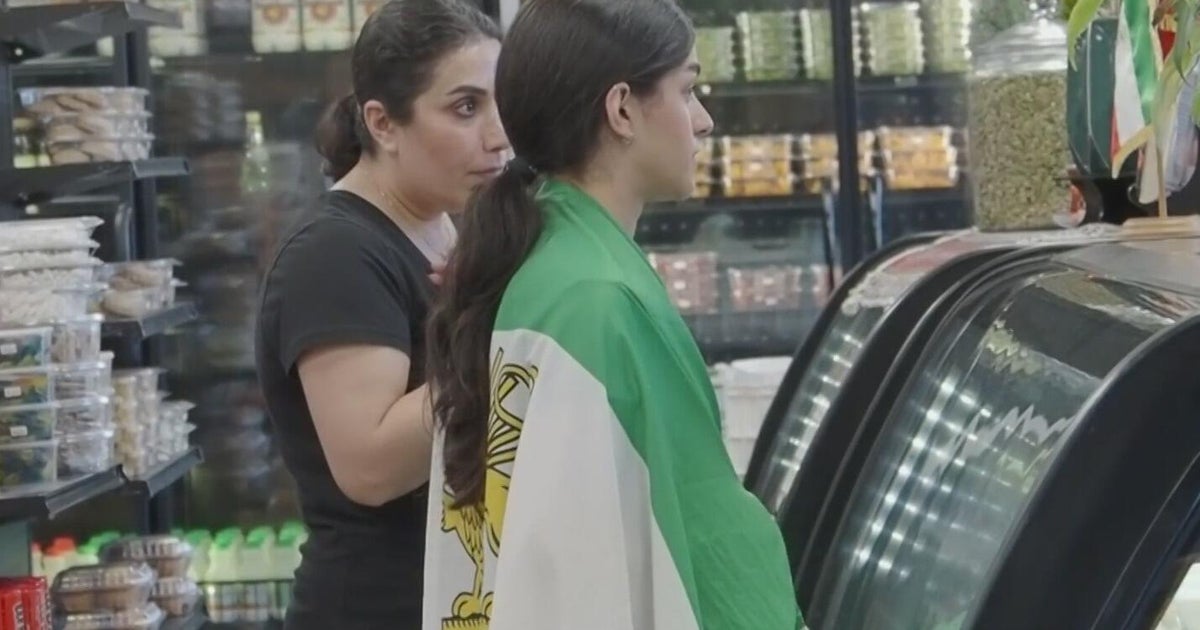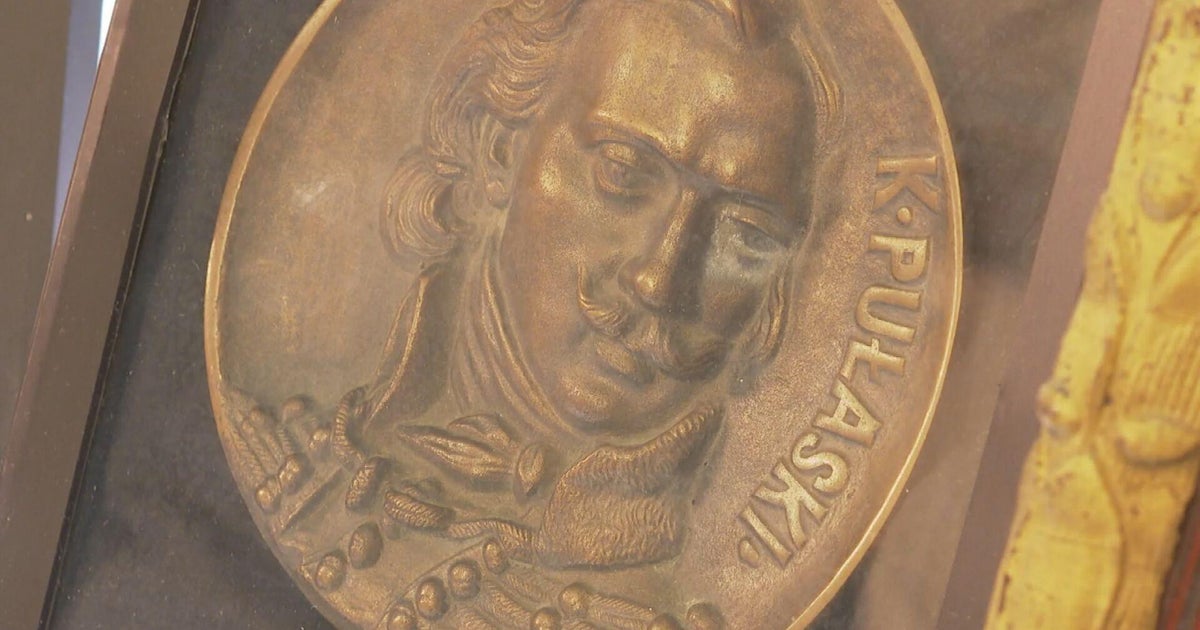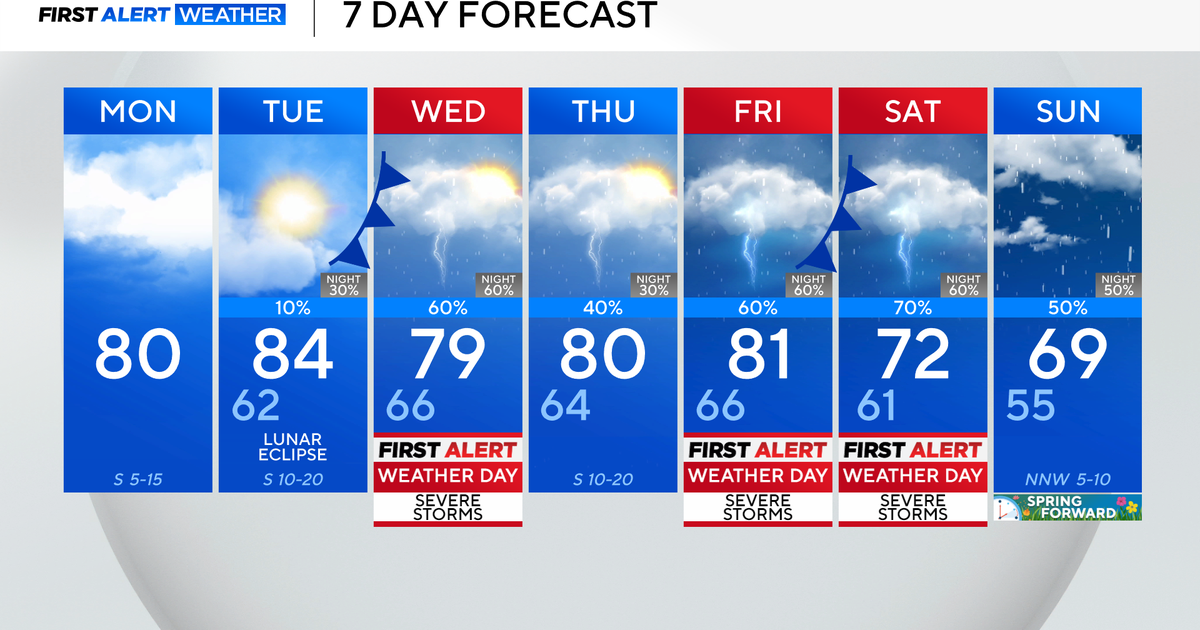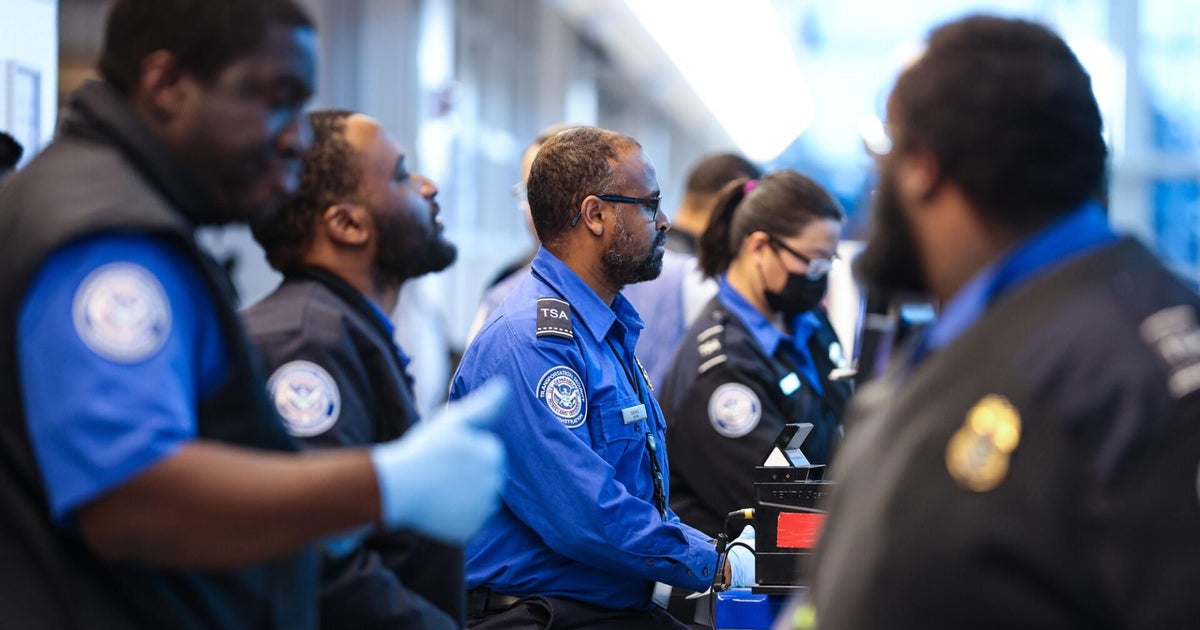CBS13 Q&A With Sacramento Mayor Kevin Johnson
SACRAMENTO (CBS13) - Sacramento Mayor Kevin Johnson, who is wrapping up his four years in office and running for re-election, sat down with CBS13's Ben Sosenko on Wednesday and addressed topics ranging from the failed arena project, the future of the Kings in the capital, job creation, and his desire for the city to adopt a strong mayor form of government.
Here is the interview in its entirety:
Q: You're the busiest man in show business, at least in Sacramento. What's your day like in your first term?
A: It's been good. It's been action-packed. I get up, I work out at 5 in the morning, try to get to the office around 7. Work for about 12 hours. I usually have some event during the evening and it's what I signed up for. I enjoy what I do, and I'm looking forward, Lord willing, to another four years.
Q: Is it a longer day to be mayor or to be an NBA point guard?
A: It's a much longer day to be mayor.
Q: So how do you adjust to that?
A: The training and the fitness from the NBA days have prepared me so I'm in good shape to be a mayor. The one contrast, which is kind of funny, or similarity in this case, is when you're in the NBA and you're in the paint, people throw elbows. They throw elbows in politics and some of the little older ladies at the town halls have really sharp elbows and they'll cut you up in a minute if you're not responsive. So there's a lot of similarity between the two.
Q: Tougher matchup, MJ, Isiah, John Stockton, or trying to convince some of the council members to go for some of the things that you want?
A: Council would be tougher (laughs). Council clearly would be tougher. At least I had a shot in my NBA days. I could control my destiny with guarding Michael Jordan and some of those folks. Not too often was I successful, but at least I thought I had a fighting chance. Sometimes with council it's tough, but nonetheless I think we're moving the city in the right direction and I've enjoyed it.
Q: Talk a little bit about being a strong mayor. You obviously wanted that to happen. What kind of challenges does that present when you want and can't be a strong mayor in this town?
A: For me to run for re-election I signed up knowing that this form of governance may be the same form that I have to endure another four years, but I will tell you I think the community gets short-changed. I think if you change the governance from a weak to a strong mayor, we'd be much more robust. Our performance level would increase. I think we'd increase a lot more opportunities in Sacramento. We'd create an environment with accountability. What I've asked really for council is let the people vote. Let them vote up or down, and if you do that I think that you'll be able to see a public that wants a change. They want a mayor to be able to have the authority to make some decisions, propose a budget, hold that person accountable. Right now the way our government structure is set, which we haven't modernized for 90 years, is all the decisions are based by the city manager and most people in the public of Sacramento don't realize that. They think the mayor is actually calling the shots. I'd like the buck to stop somewhere and one of the criticisms that people gave me early on is let's do it at a new term, so when you're election is up let's put it on the ballot at that point in time, and certainly that's what we are working towards and we haven't gotten there but I do think in the next year or so we're going to be able to put it on the ballot and let the people vote.
Q: If it doesn't happen, why even be mayor? Why would you want to continue?
A: Fair question. It's something I had to think about long and hard and it's a tough decision to me, because it's very frustrating for me. I'm an executive. I want to solve problems. I want accountability. I want to fix things. I want to make lives better for the community and the way our governance structure is set up I don't have the power to do that, so it's been very frustrating. In fact, that by far has been the most frustrating aspect of my job. But when you think about it at the end of the day we have been able to do some good things and I don't think my job is done, and I just think that I will only be able to be a marginally effective as a leader in this government structure. We'll get good things done, but I think we'd be able to do so much more. I think the public understands now that the majority of cities our size have a strong mayor form of governance and all I've asked is allow the people to vote on it, and if it passes try it for eight years. That's called a sunset. You try it for eight years. If you like it, let's make it permanent and if you don't, you can revert back to where you are. There's nothing to lose but one of the lessons learned over the last four years is government doesn't want to reform itself. It's very hard to do that.
Q: The biggest successes? The biggest failures?
A: I think the biggest successes would be homelessness. We ended up getting 2,400 permanent housing units for our homeless population. Chronic homelessness is down 50 percent and overall homelessness is down around 20 percent, so that was a big success for me. We're over-reliant on government jobs and the real estate industry. I think we were able to diversify with the green sector, we did an initiative called Green Wise. We were able to attract $100 million in private investment that will allow us to commercialize retrofit commercial buildings, create 1,500 jobs in five years. In fact in California we've had the top growth in all of California when it comes to green jobs.
Q: How many green jobs have come in to Sacramento since you took office?
A: I think our count is upwards of 3,000 and climbing, so there have been a lot of jobs created or that are online in the green sector so that is something I'm proud of and that lastly, one of the things I think we've been able to do is elevate the profile of Sacramento. I think that was important. We are the capital of California for crying out loud. We should be the second-most important capital in the country. We have Washington D.C. and Sacramento. We are the capital of the eighth-largest economy in the world and we need to act like it, we need to embrace that and I think elevating the profile of the city has been something I think we've been able to do successfully, which attracts more resources, and the more your on people's radars, the more you community will benefit.
Q: Have you created enough jobs?
A: I think we have. I'd like to create more. I think there's a double-digit unemployment rate in Sacramento and one of the things I've been fighting for in Washington is trying to get more dollars in the city of Sacramento. I fight at the state on a regular basis. Redevelopment was taken away, which was a big disappointment for all of us, but my job was to, you look at the hand that you were dealt and you play it but you make no excuse and you have to think inside and outside the box of ways to create other opportunities. So I think we've been able to create a lot of jobs, but there is a lot more opportunity out there for us.
Q: You always talk about a full-service city. When the arena deal fell through, you said you want to run a full-service city. You could lose 64 firefighters, a bunch of cops, how do you react to that?
A: I've been a huge proponent of public safety. I think the main role of government is to make sure things are safe and secure. I've never voted against police and fire on any item and I think that we have to understand as a community it's more then a priority, it's an obligation and I'm thankful to police and fire because they've given labor concessions when they needed them. Now we're giving pension reform. We have to have them agree to pension reform, that's real. That will actually allow us, if we can get pension reform by both of those another half by fire, and a full pension reform by police, it will allow us to balance our budget. I don't want to cut sworn officers. I want to protect public safety. At the same token, when you're a full-service city, when you look at parks, parks has been decimated over the last four years and we were able to look at creative ways to getting more resources to keep our pools open. Save Mart is an initiative we did in Sacramento. We were going to lose all over our pools. We were able to raise a million dollars to keep six pools open. That's kind of the mindset. You got to find ways to do more with less. I'm proud of the way we fought as a community. There's certainly much more we can do. I'll say this last thing. What people want in Sacramento is they want to know that their government is being responsive to them. They want to know that we're figuring out ways for government to work for them. You got to fill pot holes and handle the sewage and trash pickup and all those things. We got to show our community we can run more effectively and more efficiently, and that's something I think we've made some progress on and we have more work to do.
Q: What do you say to people, and I've heard your reaction, but people who said you spent too much time on the arena, too much money on the arena, when you should have been focusing on public safety?
A: I would just disagree. When you're a mayor, you have to be the mayor of the whole city. You've heard me say time and time again that the arena was about 4,000 jobs. There is nothing I could do in Sacramento to create 4,000 jobs that quickly and that effectively. Everybody gets it, it's bigger then basketball. … If we want more resources for public safety, or more officers on the street, you have to figure out a way to grow. Having a downtown arena would have brought $154 million of additional revenue, which goes into our general fund. Some of that goes into our general fund. That means we have more opportunities to maintain services and programs. So it's never about a basketball team. It's about keeping a major employer in Sacramento, at their heyday the Sacramento Kings employed part time and full time almost 1,000 people in our community. We don't want to lose a major employer. We want to bring 3 million people downtown. That's part of our revitalization the arena would do. Certainly the jobs is something. Most people when you have that dialogue understand, wow 4,000 jobs, 3,700 construction jobs, when the industry has been hit so hard over the last three or four years, most people get that.
Q: There are people who don't get it, I mean I heard a couple speakers (Tuesday) during the hearing with the firefighters say the same thing. Why hasn't that message of what you were trying to do come across to those people and why do they see it as a black and white issue? Should have been spending time on public safety. Arena was a waste of time.
A: I think it's a fair question but just because you have a few vocal people does not mean the majority of people don't get it. The majority of people could walk from here to McKinley Park and I guarantee you 80 percent of people will say thank you for fighting, thank you for trying to keep the team here, thank you for trying to create jobs. You're going to have a vocal minority and that's what makes democracy great. I can sit down with those people that were at council chambers last night and have the same discussion and they'll say I get it, but I want you to do more on public safety, and I'll say in this governance system I am doing as much as I can. I'd love to be in charge of the city, where I can negotiate. I'm precluded from negotiating. That is handled by the city manager and it's handled by a labor team that handles those types of things. As a mayor, that's not in my purview. I wish it was. Those are the things I'd love to be able to do so I can spend more time on it but I'm actually limited by what I can do in terms of achieving the results I would like to do.
Q: Can anyone come close to beating you next term, next election?
A: In sports what you learn is you never want to take anything for granted. People say I don't have a viable candidate. Anybody who signed up is viable and I'm going to work my tail off. I tried to raise a lot of money. I've been at town halls, I've knocked on doors. I'm treating this like I'm running against an incumbent. I did that four years ago. I won the primary. I won the general and I'd like to have the honor to serve four more years and I'm not taking anything for granted.
Q: Let's go back to New York. A month ago, that Friday when you made the announcement the (arena) deal was over you could see how upset you were, so when what you called the biggest accomplishment, maybe even bigger than anything you did on the court, what did you do when you left that press conference?
A: I was shocked. I was literally in shock to know that on February 27 in Orlando, we all held a press conference and celebrated this amazing achievement. We came back, voted on it at council, got the votes that we needed to go forward. That was March 6. The next two or three weeks we're celebrating. We're doing victory laps, we defied every odd, we did the impossible. We figured out a financing plan to build a new entertainment and sports complex in a down economy, in California, where it's virtually impossible to do. When I first heard grumblings the Maloofs were not comfortable with the deal, that was just something I didn't think was real, when we all agreed upon in Orlando. Then I go to New York, to your point, I'm out there, sit down, we have a discussion and it became very clear that they were not going to honor the commitment and I was just really disappointed for Sacramento.
Q: Depressed? Were you depressed that night?
A: I'm more of the fighting spirit, so I think at the initial realization that it wasn't going to happen I was just disappointed for our community because we can't get a break. I mean, we've been fighting so hard to make this a reality over 10, 12 years. We were finally there. And I think after realizing it wasn't going to happen I became more determined, and I realize as a community we're going to have to make our own breaks and we're going to figure something out. We're going to figure out something for the railyards. Whether it's a basketball team or some other sport or some other use, Sacramento deserves to have a vibrant downtown that could match itself with any other city around the country, and so I guess that's where I'm at. I'm determined in the next four years to make that a reality in some shape or form.
Q: Will there be a building there by the time your next term is up given that you win?
A: I'd like to think there or a building on track to be there. I think it's going to take three years to do it. So if we pull it off in the next year there would be a building there. If it takes a year or two to get there it might not be done by 2016, but I think it'll be on the books and online and I think again that's what we need in Sacramento. The railyard project is 240-plus acres, one of the largest infield projects in the country. We have an intermodal that's already one of the busiest in the country. We eventually want high-speed rail to come in. To be able to take a transit-oriented development and bring in an ESC that was a good catalyst project for real economic development. The whole railyards project as you know it doubles the size of our downtown. So having those two play off each other was something I thought created great synergy and something that would be very catalytic.
Q: Will the Kings be here in five years, I know you're not a fortune teller, will the Kings be playing in Sacramento five years from now?
A: I don't know.
Q: In your heart of hearts?
A: In my heart of hearts, Sacramento will remain an NBA city. I do believe that. I can't tell you what that'll look like. I don't know if the Kings will be here. I don't know if the owners will be the same owners of the team. I don't know if a new owner will be here. I don't know if a new owner will bring a new team in, but I think Sacramento is a great basketball market and I do think five years from now it will still be an NBA city.
Q: How bad do you want the Maloofs to sell the team?
A: It's funny, when you look back over the last year my preferred option has always been same owner, same team, and I feel it was all of our preferred option. We did everything we said we were going to do. It wasn't enough for these owners. I respect their rights and their ability to make decisions that are in the best interest of their business. But in all honesty, I do think we need to look at all of our options.
Q: So you want them to sell?
A: If they were willing to sell, I think it would be great. They've always said they're not willing to sell. If they were willing to sell, I guarantee we would have a buyer who would come in an pay fair market price to buy a team and keep them here in Sacramento if they were willing to do that.
Q: Have you read the letter yet Think Big sent?
A: I have not:
Q: Why? It's one page.
A: We've been dealing with the whole budget stuff the last couple days.
Q: But it's one page.
A: Yeah, I haven't seen it, no.
Q: Are you at all involved with Think Big and their back and forth with the Maloofs now?
A: I get abreast of what goes on, but I mean Think Big is a group of stakeholders in the community that's a coalition of both Democrats and Republicans, elected and unelected business and labor. They're fighting for the best interest of Sacramento as well. I don't approve all the things Think Big does.
Q: Do you have discussions?
A: Sometimes I do. Sometimes I don't. This one I didn't. I'm not aware of what went on.
Q: Did you have a discussion about the North Korea comment? (Think Big executive director Chris Lehane compared the Maloofs to North Korea).
A: I did not. I read it and thought it was kind of funny, but maybe a little extreme, but it did kind of tickle me for a little.
Q: This isn't your hatchet organization that you can throw stuff into the media, throw stuff at the Maloofs and then say "I had nothing to do with it"?
A: You guys give me too much credit. I wish I had that type of machine. I can't even get five votes on council half the time, so no I'm not quite at that point yet. I do think there's a lot of frustrated people, so if you're talking about the group of owners or business people who asked the Maloofs to sell, I had nothing to do with that. I'm not even sure who those folks were, but I think what you're seeing is an emotional community that's very frustrated with what has transpired and everybody's fighting for Sacramento and they want Sacramento to be a community that reaches its potential and everybody is going to go at it in a different way and I think I prided myself in always being positive and being a straight shooter and not taking any low blows. But certainly I got to hold the owners accountable and I think that's what our community expects.
Q: Everyone's making sacrifices. We know in this community a lot of people have to make sacrifices with the economy, with everything. What sacrifices has your office had to make?
A: We're all doing a lot with less in general. Secondly, I've tried to raise a significant amount of money for all the initiatives or all the opportunities. Over four years we've raised over $10 million. This is private dollars helping public good. I think that is something that I'm proud of. I'm not going to call them sacrifices. These are ways that create opportunities when they don't exist. Lastly, over the last four years, every trip that I've taken I paid for out of my own pocket. That's what I signed up for. I love sacramento. I love our community and I think we can be so much more. I get frustrated when we aren't able to embrace who we could become. That's what I'm determined to do over the next for years and I think the best is here to come.







